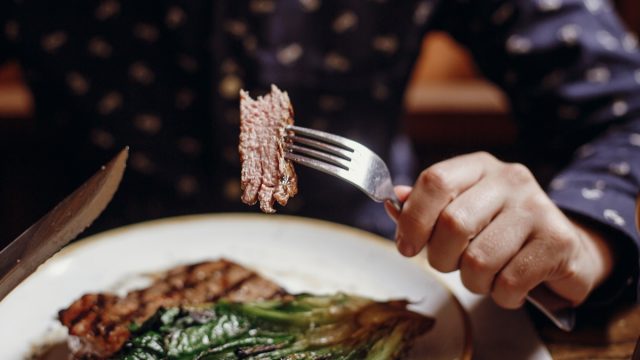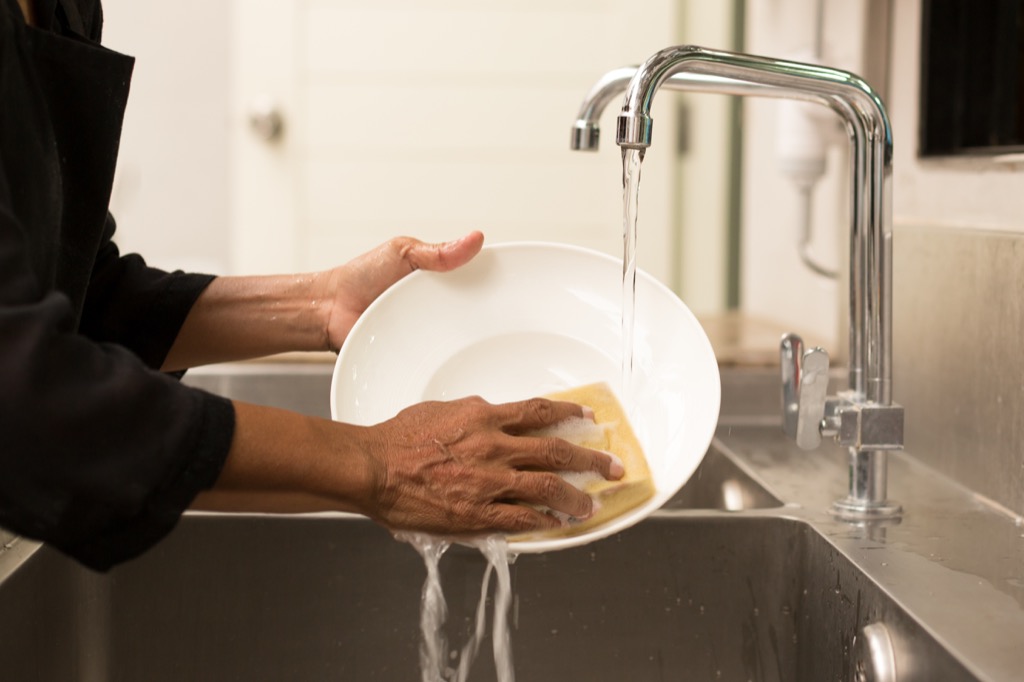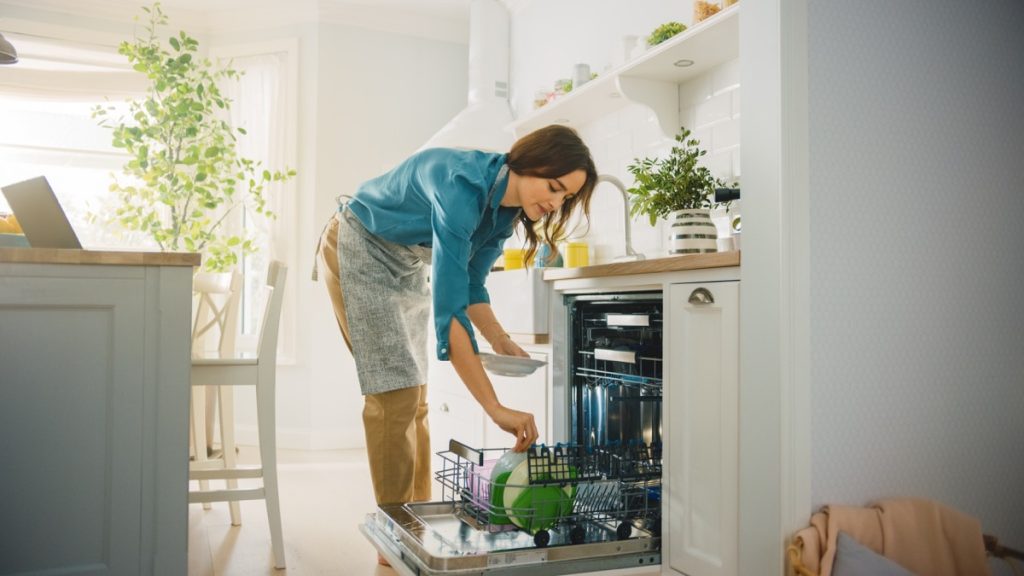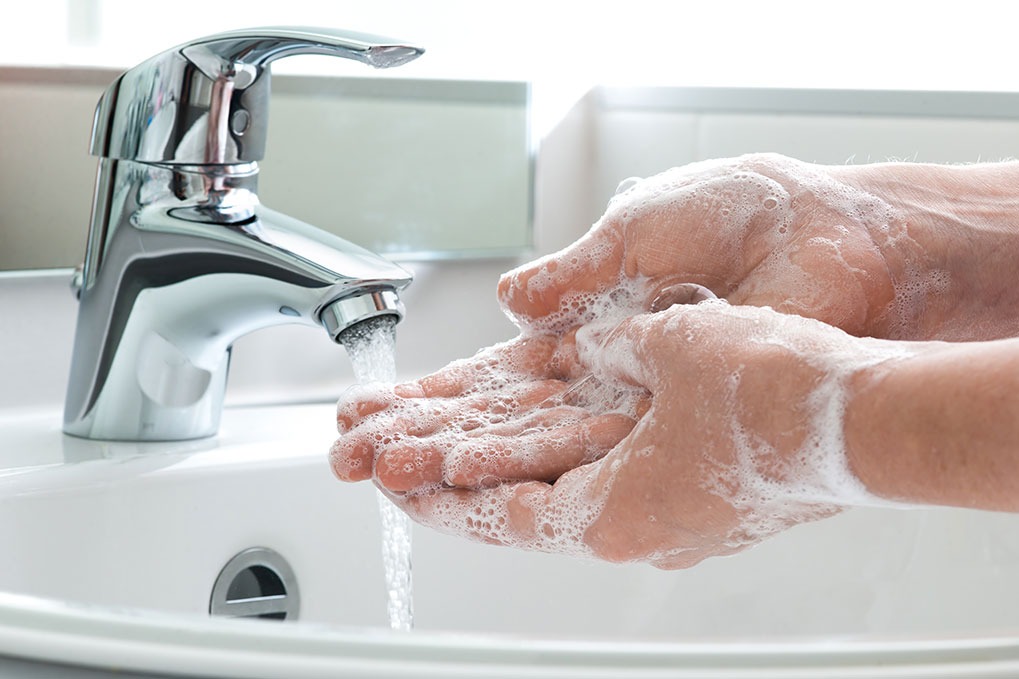Never Do This With Your Cooked Meat, CDC Says
You've probably made this dangerous cooking mistake more than once.

Cooking a meal is about so much more than putting food in your belly—it can be full of creative expression, or a way of sharing community. But it can also be a source of great responsibility, given all the ways it can go wrong.
The cooking of some food items is notoriously more fraught than others—with meat being among the most likely to cause foodborne illness. Before you slap another steak on the grill, read on to find out which culinary habits could be putting you and the folks you cook for at risk.
RELATED: Never Wash These 4 Foods Before Cooking Them, CDC Warns.

If you're using one plate to hold meat when it's raw, then returning it to the same plate once it's cooked, you could be putting your health in jeopardy. The Centers for Disease Control and Prevention (CDC) warns that this can be dangerous because "germs from the raw meat can spread to the cooked meat." It's an easy error to make, and one you've probably made at least once out of convenience.
Instead, you should plan ahead by bringing two plates—one for before, and one for after cooking. "Always use separate plates for raw meat and cooked meat. The same rule applies to chicken, turkey, and seafood," the CDC says.
RELATED: The One Vegetable You Should Never Eat Raw, CDC Warns.

Even once you've finished cooking, you should take special care with how you handle plates that have held raw meat. According to the United States Department of Agriculture (USDA), simply washing those dishes by hand may not be enough to decontaminate them from harmful bacteria.
"Cleaning is the first step to get rid of bacteria from these surfaces," the USDA explains, referencing any surface, plate, or utensil that has come in contact with raw meat. "Foodborne-illness-causing bacteria can remain on surfaces for a very long time. Campylobacter can survive in your kitchen for up to four hours, and Salmonella can last for up to 32 hours (and both can be found on raw poultry)." The authority explains that washing a plate with warm, soapy water may remove some debris and germs, but it is not enough to effectively kill all of the bacteria that could make you sick.
For more food safety tips sent directly to your inbox, sign up for our daily newsletter.

Rinsing your dishes is important, but it's only the first step to decontamination, says the USDA. "Whenever you cook raw meat or poultry, make sure you clean and THEN sanitize not just your surfaces but also the kitchen sink," the USDA warns.
The authority recommends using a dishwasher to clean plates, utensils, and cutting boards that are non-porous and dishwasher safe—and to use the highest heat setting available, ideally over 140 degrees Fahrenheit.
If you're wary of putting certain items in the dishwasher, using a sanitizing solution made of one tablespoon unscented liquid bleach and one gallon of water can help kill any residual bacteria. The USDA recommends pouring the solution on any item that needs to be decontaminated and allowing it to sit for a few minutes, or soaking smaller items in the solution itself. Rinse the solution off with fresh water after a few minutes and then use clean paper towels to dry the items off or allow them to air dry.

Keeping your plates and surfaces clean and sanitized is important, but the CDC says it's just one small piece of the kitchen safety puzzle.
The health authority recommends washing your hands for at least 20 seconds with soap and running water both before and after cooking to avoid transferring bacteria from your hands to your food or vice versa. However, the CDC cautions against washing certain food items—specifically meat products and eggs—because this can transfer dangerous bacteria from those items onto your sink and other surfaces in your kitchen, potentially contaminating other food. Instead, simply cook meat and egg products thoroughly to reduce harmful bacteria.
RELATED: Never Grill Your Meat or Chicken Like This, USDA Warns.





















